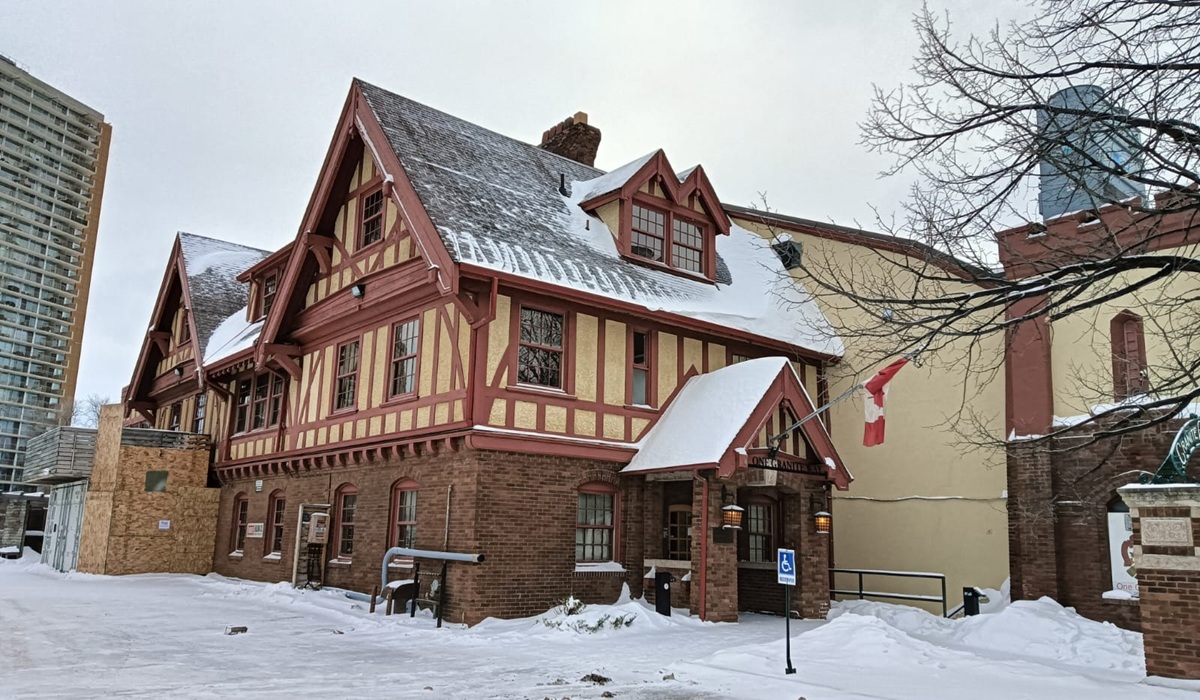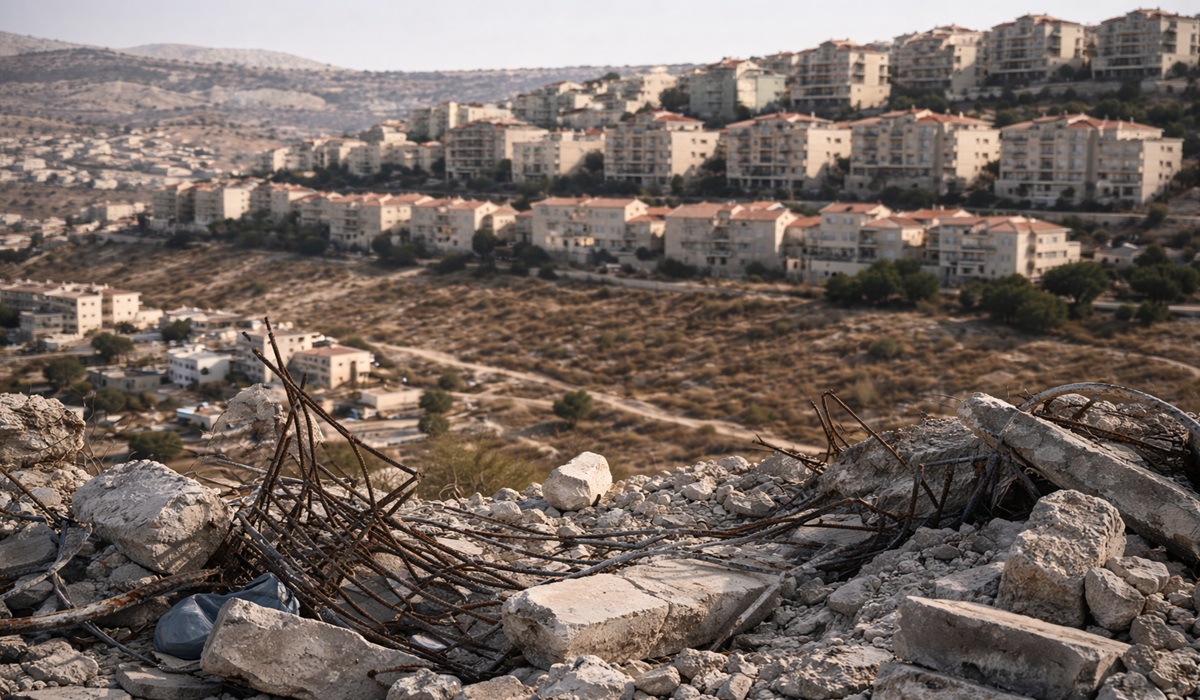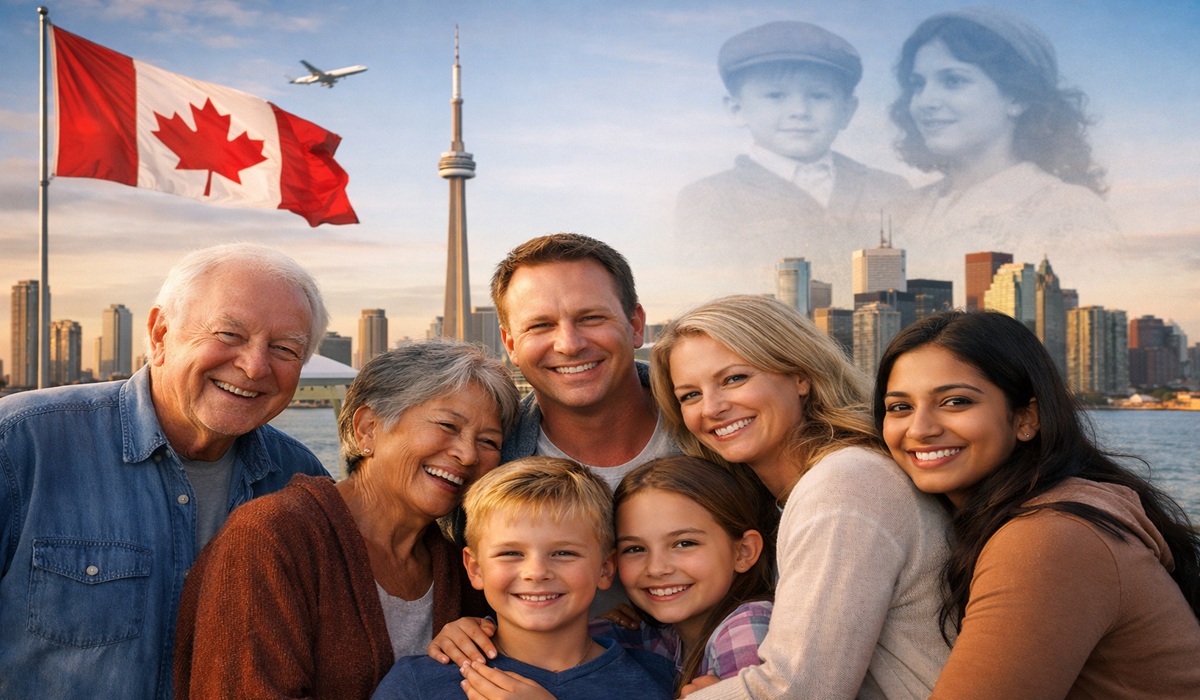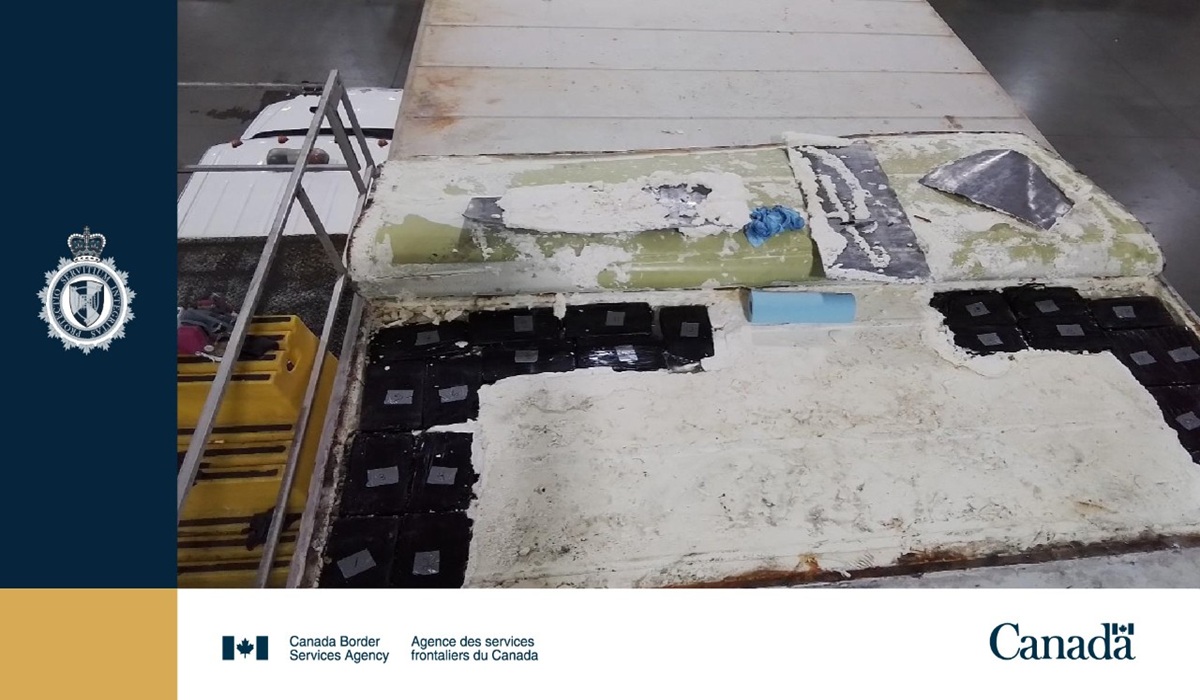Manitoba Sets a National First by Marking Palestinian Independence with Flag Raising
- TDS News
- Canada
- November 15, 2025
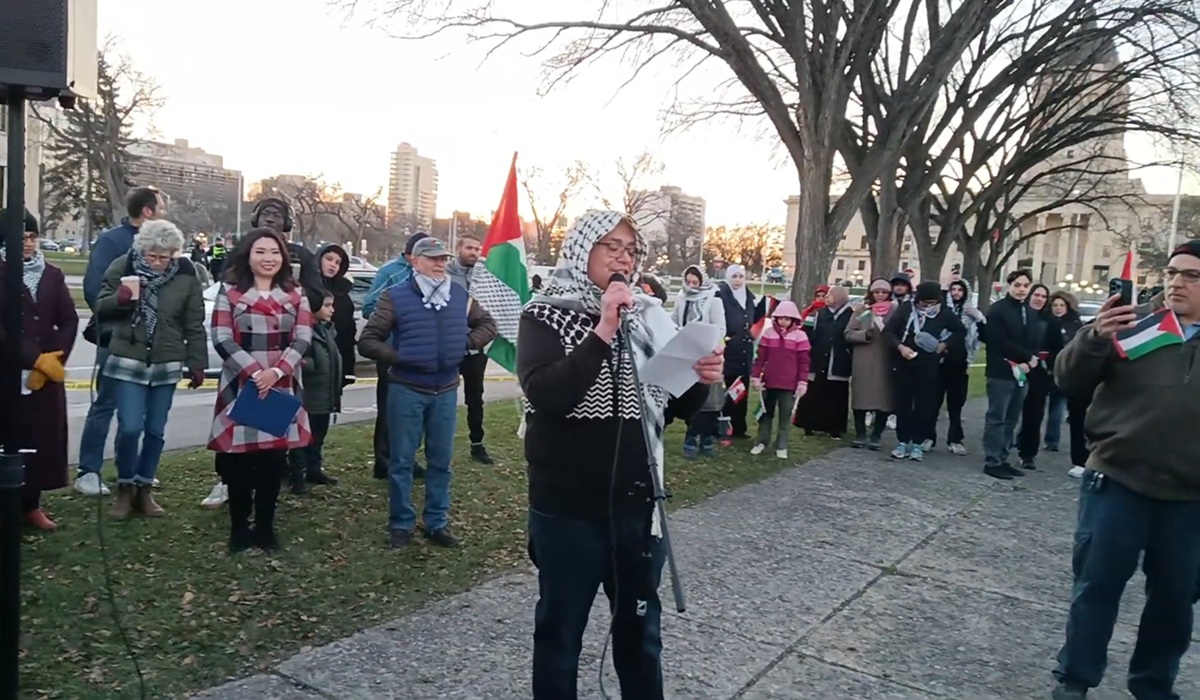
By: Donovan Martin Sr, Editor in Chief
Today marked a turning point in Manitoba’s history—quiet in tone, powerful in meaning, and impossible to ignore. For the first time, the Government of Manitoba raised the Palestinian flag on the day of Palestinian Independence. The moment was unmistakably symbolic, but it was also deeply human. It carried the weight of history, the scars of conflict, the resilience of identity, and the hope that communities long separated by narratives of division can gather on shared ground and begin again. In a province known for its diversity, for its complicated history with its own Indigenous nations, and for its ongoing journey toward reconciliation, this act was not just ceremonial. It was a reflection of Manitoba’s willingness to look at the world with clear eyes and an open heart, to acknowledge pain without turning away from it, and to recognize the humanity of all people who call this province home.
The flag-raising was well attended, with hundreds gathering in Memorial Park across from the Legislature. They came not only from the Palestinian community, but from every corner of Manitoba’s social fabric. Christians stood alongside Muslims and Jews. Community leaders, longtime allies, newcomers, students, seniors, members of various foundations, cultural organizations, and representatives of the Palestinian government came with a shared purpose: to witness something historic. Among them was Ramsey Zeid, president of the Palestinian Association of Manitoba, a man whose voice has become synonymous with advocacy grounded in compassion and the pursuit of dialogue. His involvement over the years has shaped so much of the bridge-building now visible within the community. Today, he spoke not in opposition to anyone, but in dedication to everyone—a message calling for unity, for peace, and for the recognition that this moment belongs not just to Palestinian Manitobans but to all Manitobans who believe in dignity, fairness, and coexistence.
Ramsey Zeid words carried resonance. He reminded the crowd that Palestinian Independence Day is not simply a date on the calendar—it is a symbol of the Palestinian people’s unbroken connection to their homeland, a reflection of their ongoing struggle, and a reaffirmation of their hope for a future built on mutual respect. He called on Palestinians to see this moment as an opportunity for healing and unity among their own people, and equally as an invitation to deepen understanding and compassion with their Jewish neighbours. “This is a time of peace,” he emphasized. “A time for dialogue. A time for hope. A time for us to see each other fully, with humanity.” The crowd responded not with applause alone, but with a quiet recognition that these words reflected something long overdue in the province—a willingness to imagine a future that does not rely on old wounds as a blueprint.
This inclusivity was reflected in the voices and prayers offered. A Christian speaker delivered words about shared compassion. A representative from a Jewish organization spoke about solidarity despite differences. An imam offered a prayer for protection, unity, and peace. Their collective presence was proof that the raising of the Palestinian flag was not an act of exclusion. It was not a celebration against anyone. It was a step toward broadening understanding—toward refusing to allow fear, misinformation, or inherited hostility to dictate the boundaries of Manitoba’s political or social landscape.
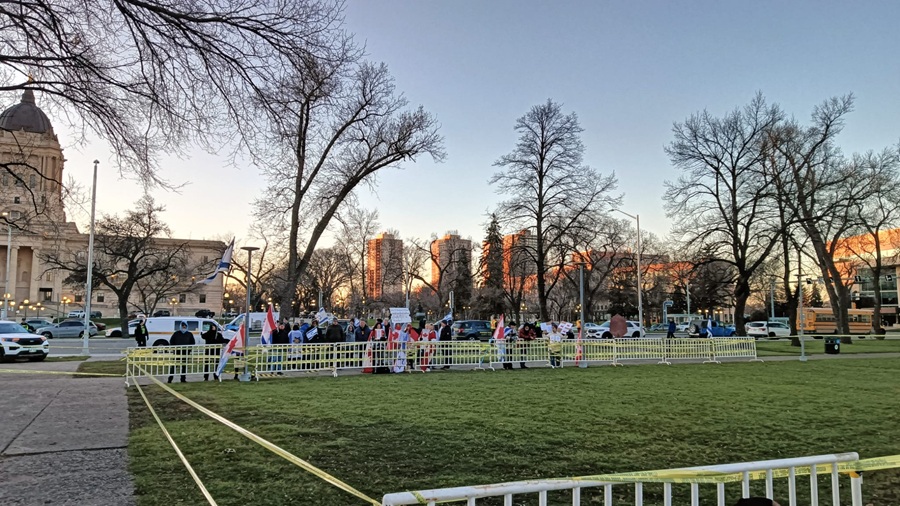
Of course, as is often the case with moments of change, there was a small counter-protest. A group of individuals stood waving Israeli flags and holding signs accusing the Premier of Manitoba of being a traitor for allowing the Palestinian flag to be raised on provincial grounds while shouting obscenities. Their demonstration was peaceful, and in a free society, peaceful protest must always be protected. But the accusations speak to a misunderstanding of what this moment represented. When Canada recognized Palestine as a state, it did so in acknowledgement of the Palestinian people’s legitimate claim to identity, autonomy, and representation. Raising the flag is a formal extension of that recognition. Similar acts take place across the nation constantly. Every year, City Halls across the country raise national flags in honour of independence celebrations of countries from every continent. Manitoba itself has raised over a hundred flags over the years—Ukrainian, Filipino, French, Italian, Indigenous, and many more. Not once have these displays resulted in protest. Not once has anyone been called a traitor for honouring the cultural pride of another community.
Why should Palestinians not be afforded the same respect?
That question forces Canadians to reckon with the complicated and often painful history of Palestine itself. One cannot speak about Palestinian identity without acknowledging the long shadow of occupation, the decades of displacement, the dismantling of land, autonomy, and basic human rights. To understand the present moment is to remember the Sykes-Picot Agreement of 1916, when foreign powers carved borders across the Middle East without the consent of the people who lived there, setting into motion more than a century of instability, conflict, and contested sovereignty. The consequences of that agreement still ripple across the region today, shaping realities not only in geopolitics but in the intimate lives of families and communities. For Palestinians in Manitoba, the raising of their flag today was not merely symbolic; it was a reclaiming of dignity denied, a moment where their identity was not only recognized but honoured by the province they now call home.

This recognition matters for Palestinian Manitobans who have spent generations carrying stories of loss, exile, and resilience. Many arrived in Manitoba seeking safety, opportunity, and peace. They built lives here, raised children here, contributed to the social and economic landscape of the province, and worked quietly to preserve their heritage. For them, seeing the Palestinian flag fly over Memorial Park was not about politics in the narrow sense—it was about belonging. It was about affirming that their struggle, their history, and their identity are not invisible. They are seen, acknowledged, and respected. This simple act by the provincial government said, without qualification: your story matters here.
And it matters to the wider community as well. Manitobans who have long supported Palestinian rights saw today as confirmation that advocacy can lead to meaningful change. Many in attendance were not Palestinian, but felt deeply compelled to show solidarity because they understand that justice is universal. They understand that affirming the dignity of one community does not diminish the dignity of another. They understand that dialogue cannot begin from a place of refusal or hostility, but from openness.
The counter-protesters, though peaceful, reflect how entrenched some divisions remain. Their presence underscores the need for continued dialogue, not for retreat. Calling the Premier a traitor ignores the basic principle that recognition of one community’s rights is not an attack on another. It is a commitment to fairness, to pluralism, and to the fundamental Canadian belief that cultural expression strengthens, rather than harms, social cohesion. This belief is shared across Canada. In Toronto, Mayor Elizabeth Chow has already announced her intention to raise the Palestinian flag at City Hall in the coming days. Other cities may follow. The momentum is a signal that Canadians are ready to engage with the Palestinian story in a way that is honest, compassionate, and free from the old binaries that have long trapped public discourse.

Moments like today do not erase the complexity of the conflict. They do not undo decades of pain. They do not bring immediate peace to Gaza, or end settlement expansions in the West Bank, or bridge ideological gaps that have hardened over generations. But they do something else—something essential. They make space for dialogue. They create room for people who have been taught to mistrust each other to stand in the same place and witness the same moment. They challenge old narratives that insist communities must remain separate, suspicious, or adversarial. They allow for the possibility that healing does not begin with political agreements but with human interaction, mutual recognition, and shared compassion.
For Manitoba, today was not just about raising a flag. It was about raising the bar for what it means to live in a society committed to dignity and respect. It was about refusing to let inherited animosity dictate the future. It was about acknowledging the weight of history without being trapped by it. It was a moment where Palestinians and Jews stood in the same crowd, where Christians and Muslims shared prayers, where the Premier and community leaders stood shoulder to shoulder, knowing that symbolism is powerful only when it is rooted in sincerity.
There is enough room in this world for Palestinian voices, for Jewish voices, for every voice willing to speak in good faith. Today proved that Manitoba understands that. The raising of the Palestinian flag was not a declaration of sides—it was a declaration of humanity. A call to see each other beyond borders, beyond politics, beyond inherited fears. A reminder that peace begins when people choose to witness each other’s stories without dismissing their pain.
This was a profound moment, one Manitoba will remember. And if today’s gathering is any sign of what is possible, then perhaps this small act—a flag rising into a cold November sky—will be remembered as the day a province helped widen the doorway to dialogue, dignity, and a future built not on division, but on shared hope.

